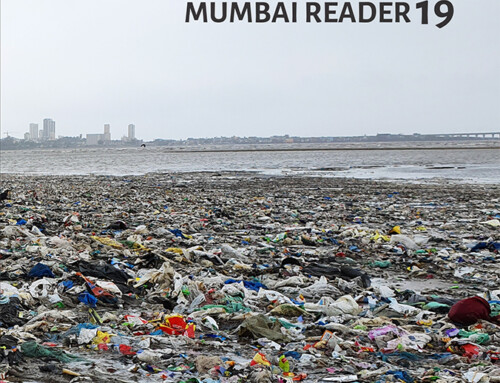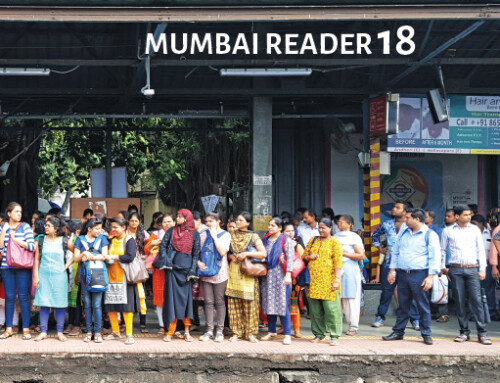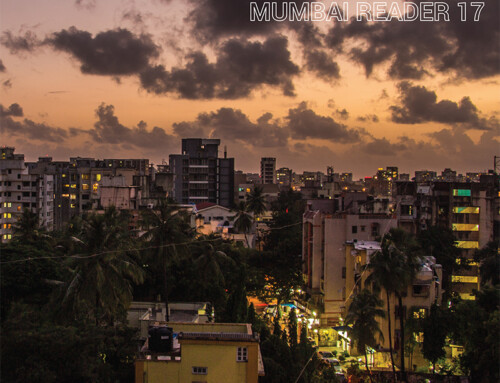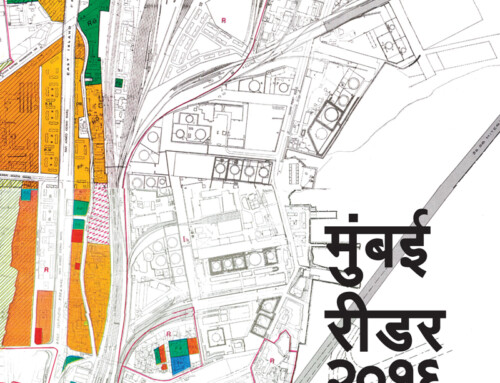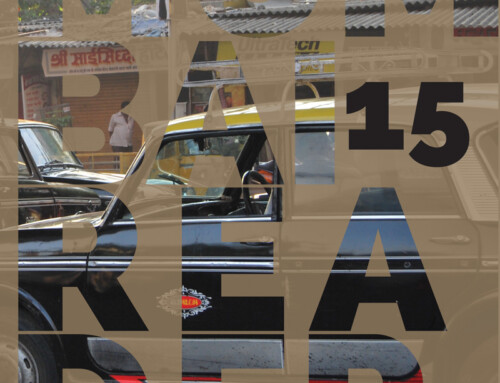Project Description
MUMBAI READER 20 | 21
Mumbai Reader’20|21 is available for reference and purchase at UDRI Resource Centre.
PREFACE
The difficulty in representing Mumbai is that such representations often fall into one of the several limitations of reading the city linearly. These limitations of linearity include making gross generalisations, or getting lost in seductive micro-narratives, or constructing incredible scenarios through meticulous empiricisms. While the generalisations strip the complexities of the city from the readings, the micronarratives are often myopic. Similarly, the approaches of using empiricisms are driven by preconceived agendas for problem-solving. Individually, the generalisations, micro-narrations and empiricisms are unable to capture the complexity of systems, organisations, and space in the city. This impossibility of conceptualising the city warrants the need to read the city in multiple ways that concurrently include an almost palimpsest-like reading of all the approaches. To talk about the city then would be to talk simultaneously in numerous, disparate ways, be it language or varying perspectives.
The Mumbai Reader attempts to represent the city that enables innumerable readings through a simultaneous and nonlinear compilation of multiple voices. The contents include some of the most recent perspectives on the city’s culture, economy, geography, and history. While it records the routine mainstream labour history and planning discourse types of writings, it also overlaps these with current debates on the city’s absurdities.
The perspectives include voices from the bureaucracy, civil society organisations, academics, industry, judiciary, media, professionals and artists. The Reader does not claim to be a comprehensive or exhaustive compilation of readings on the city. It is, rather, an attempt to provide a glimpse into the complex dynamics of the city of Mumbai.
The process of making this compilation was initiated through a call-for-papers, as well as by shortlisting relevant newspaper and journal articles to ensure that the Reader presents diverse ways of perceiving the city.
This work is licensed under a Creative Commons Attribution-NonCommercial-NoDerivatives 4.0 International License.
- Mumbai – Unforgettable City by the Sea – Paul Fernandes
- A field all to Herself – Sameera Khan
- Like Air and Water, Land is for Everyone – Shirish B Patel
- Gamdevi: Lessons from Mumbai’s Past that could help it create a better Future – Aaran Patel
- Esplanade Mansion: As 155-year-old Mumbai Landmark faces its end, a look at its Past, Present and Future – Suryasarathi Bhattacharya
- Reimagining Kamathipura: Creating Value from Waste – Ratoola Kundu, Aradhana Paralikar, Anushyama Mukherjee
- Landscapes of Resistance: Ecology and Economy in the VVSR – Aneerudha Paul, George J Jacob
- Mumbai’s Bio-Diversity Map – Rohan Chakravarty
- In a post-Covid world, Lessons in Living must come from the Ocean – John Kurien
- Hiding in Plain Sight: Mumbai’s Tide Pools and the City beyond the Shore – Radhika Raj and Sarang Naik
- Close Encounters – A Beggars’ Opera (or, Bandra to Grant Road by the Suburban Line – an Opera in 8 Acts – Neena Nehru
- Riding the Suburban Phenomenon: A study of auto-rickshaws in Mumbai – Vishal Ramprasad, Sanket Mondkar
- To help Cities rebound from Covid-19, India must rediscover the Social Ballet of the Streets – Himanshu Burte
- Money and Economy: Cities, both Paradise and Hell for Migrants – Ajit Ranade
- The Pandemic, Migrants and the Constitution – S G Kale
- Mumbai, Workers and the two Pandemics – Datta Iswalkar, Shweta Damle
- The City we ‘saw’, the City we want – Kalpana Sharma
- Healthcare in Mumbai beyond Covid-19 – Armida Fernandez
- The New Normal – Shailesh Gandhi
- How Covid-19 Pandemic is likely to change/impact the way we work in Mumbai? – Shailesh Gaikwad
- Improving Indian Urban Planning – Bimal Patel
- City Planners’ Challenges in Post Covid Era – Vidyadhar Phatak
- Pandemic forced a pause; let’s reimagine Cities to make them more equitable and inclusive – Smruti Koppikar
- A case for reimagining Urban Environments – Ravindra Punde
- Seeing the Invisible City: Thoughts on the post-Covid Indian Urbanism – Prem Chandavarkar
- Learnings from Covid: Making the City more Democratic and People-friendly – Vidyadhar Date
- Covid-19 forces us to rethink how we decongest Mumbai – Tanushree Venkatraman
- Post Covid Action Plan for Mumbai – Ashok Datar
- UDRI Projects and Events
- Judgements, Acts, Amendments
- Afterword

